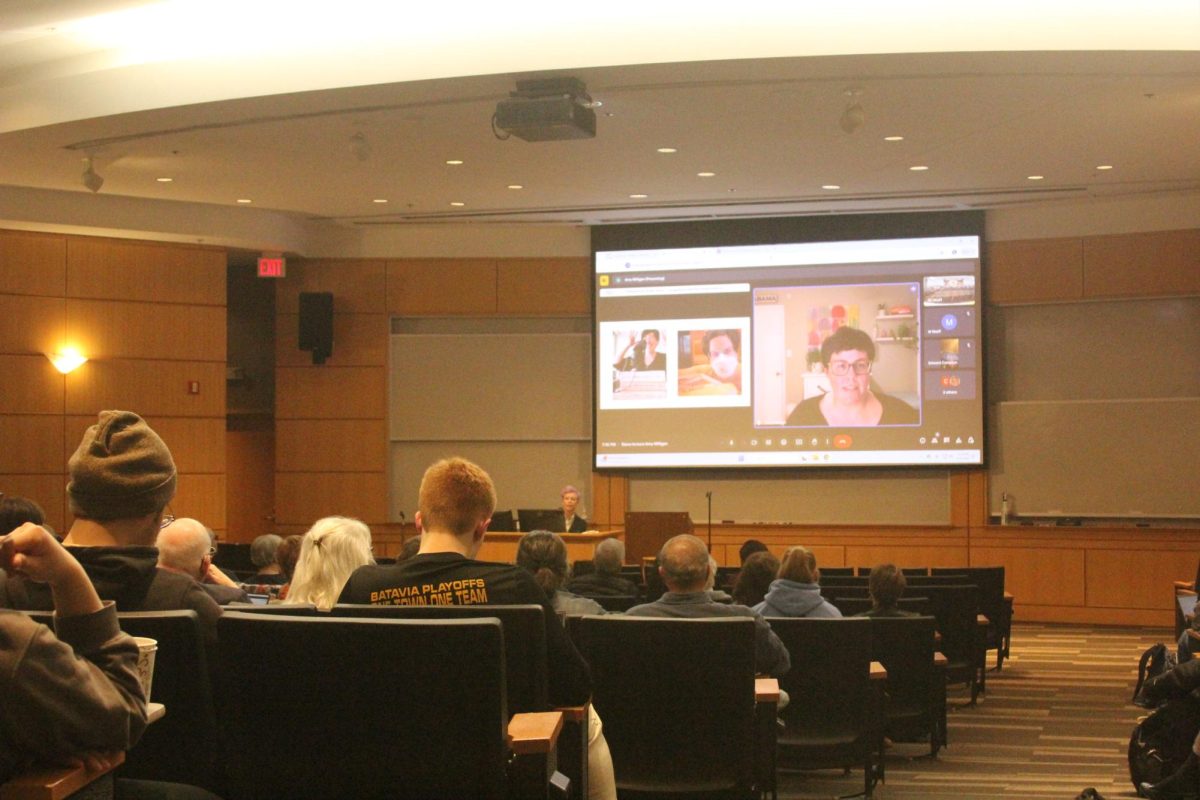On April 2nd, teachers in Oklahoma walked out of their schools, filling the State Capitol in Oklahoma City to ask for better school funding and higher wages. Similar protests occurred in Kentucky and Arizona, after teachers won a raise in West Virginia last month following prolonged strikes. Although state legislators then increased teachers’ wages by $6000 and gave schools $51 million in funding, teachers continued to protest.
Poor funding rates have been causing problems in schools, including increased class sizes, outdated textbooks, and insufficient equipment. This national coverage leaves Quad Cities educators reflecting on the state of education in the United States.
Margeret Williams, Augustana alum and English teacher at United Township High School in East Moline, said “I think what those teachers are doing is very brave. I also think that those teachers wouldn’t be doing this unless they felt like they had no other option in order to create change.”
Augustana professor of Education, Michael Schroeder, agreed. “Strikes are always a last resort. Teachers in Oklahoma haven’t had a raise in 20 years – desperation lead to this tactic. ”
“I’ve known teachers to put up with a lot that they don’t like all for the sake of the students, and if it has reached a point where teachers are walking out, then it must have also reached a point where there is no more just putting up with it,” Sheila Ahuja, an Augustana alum and English teacher at UTHS said.
According to an article in the Dallas Morning News on April 6th, US Secretary of Education Betsy DeVos responded to questions about the walkouts with the comment “I think we need to stay focused on what’s right for kids. And I hope that adults would keep adult disagreements and disputes in a separate place, and serve the students that are there to be served.”
“If teachers are not being supported, then they can’t serve their students to the best of their abilities,” Ahuja said. “I think that it is the teachers’ responsibility to serve the students, and that part of that service is to speak up when things need to be changed. I don’t see it as either or; I see it as one and the same.”
Augustana senior Garrin Jost agreed. “I think that to ‘serve the students’ is precisely what teachers are trying to accomplish. I think that no one knows what students need in relation to their education better than the teachers. Expecting business and political leaders to know the first thing about ‘serving students’ is just as absurd as expecting teachers to have any notion of how to run a large corporation.”
Commenting on education funding in the Quad Cities, Williams wrote, “I think Illinois has a lot of funding problems as a state, but the QC has done a good job at adapting and adjusting to the decisions made down in Springfield.”
Ahuja said “There are so many wonderful projects that I know we could do if we only had the funding, but overall, I don’t think it is as bad as some of these other states.” Neither of the teachers sees similar protests happening in the Quad Cities in the near future.
According to the National Center for Education Statistics, the estimated average annual salary of teachers in public elementary and secondary schools has declined by 7.5 percent between 1999-2000 to 2016-17.
In February 2018, WQUAD reported that Davenport Schools Superintendent Arthur Tate was “being investigated by the Iowa State Board of Education for illegally dipping into the district’s reserve funds to help pay for unequal funding in schools.” Tate used 2.6 million of the district reserve fund to help increase the amount of funding per student.
“Art Tate is taking a heroic stand,” said Professor Schroeder, who is an Iowa resident and has children in the state’s school system. “I don’t agree with everything he does, but I think he’s taking an ethical stance as a school leader. He’s calling attention to the unfair nature of funding rules and he”s willing to put his career on the line for it.”
Jost had a different take on the matter. “Illegal is illegal. I think that in any job related to the State there have to be procedures, especially a job with as much responsibility as a superintendent.” Jost considered teacher strikes effective because they acknowledge that “the responsibility and consequences fall on everyone”, as opposed to one individual acting alone.
In March 2018, Iowa Governor Kim Reynolds signed a bill to provide $14 million in state funds to make per student funding and transportation costs more equal in the upcoming school year. The bill would increase per student funding for schools in the Davenport district by schools by $5 each.
“Frankly, it’s a token effort,” said Schroeder. “Five dollars per students is what was added – what can you buy a student with five dollars? For four consecutive years, the state legislature funded spending increases that were below the inflation rate, so schools were laying off personnel, cutting programs, increasing class sizes. It’s a huge problem not just in the Quad Cities but everywhere.”
Schroeder spoke about Augustana’s education program, which requires prospective education majors to complete an internship as a student teacher at a local school. “They’ve been out in the field, they’re walking into the profession with open eyes. In rural and urban schools, they’re going to run into a lack of resources, and we talk about the reasons for this. We urge them to be activists, to take stands, to be active citizens as well as educators.”
Sheila Ahuja believed that prospective education majors at Augustana should know that “there will be a lot of people who have never been in your position, and maybe people who know nothing about your students, who will tell you what they think is best for your classroom and your school.”
“In entering into the profession of education, everyone is at least somewhat aware of the subversive nature of teaching” said Garrin Jost. “ I think that if education, like peacemaking, were as successful as it could be, then there wouldn’t be any need for politics. I think that as long as there are people that are willing to trade other people’s well-being for their own, education will continue to be pushed aside for more profitable endeavors.”
The Oklahoma teacher walkout ended 12th April after nine days of protests.




































































































